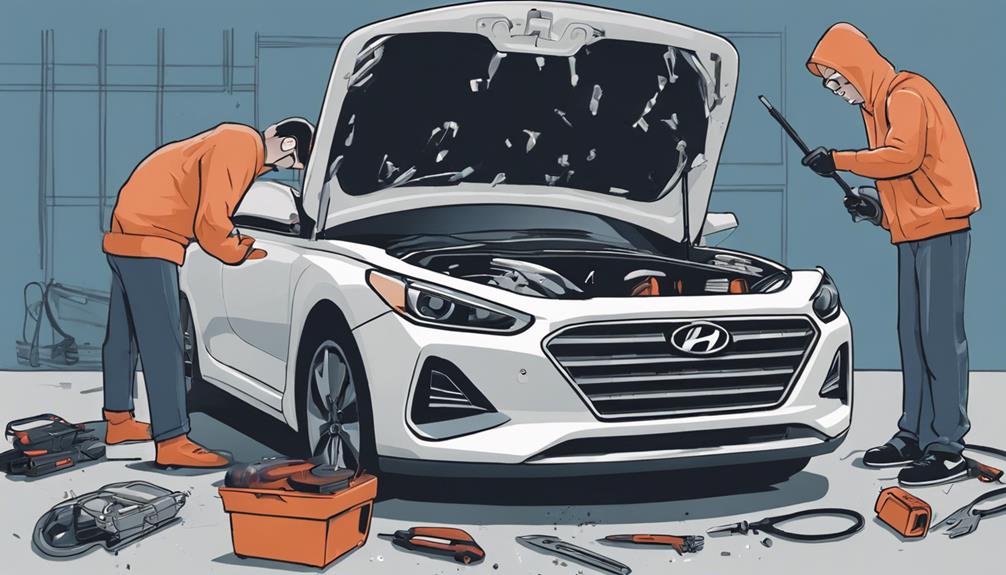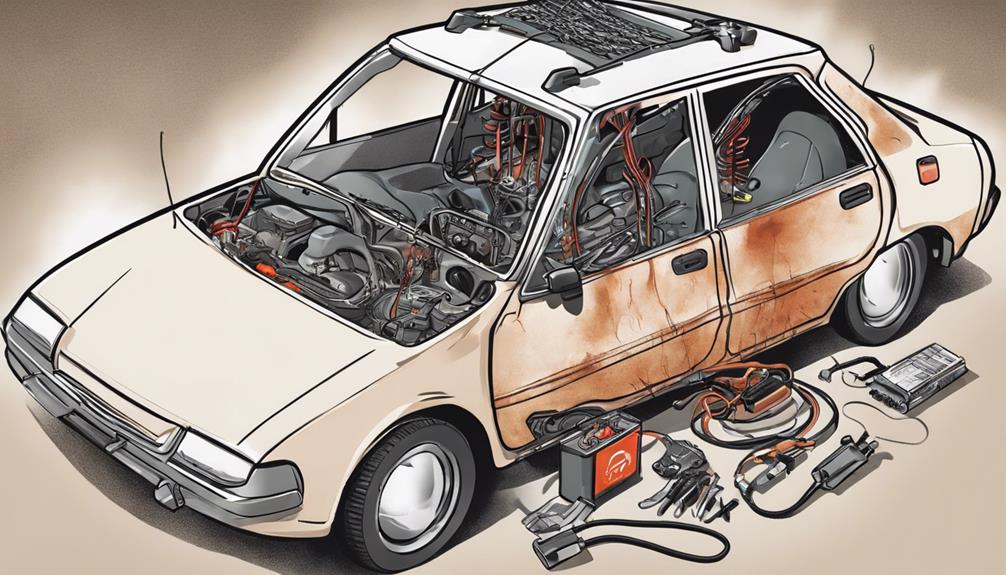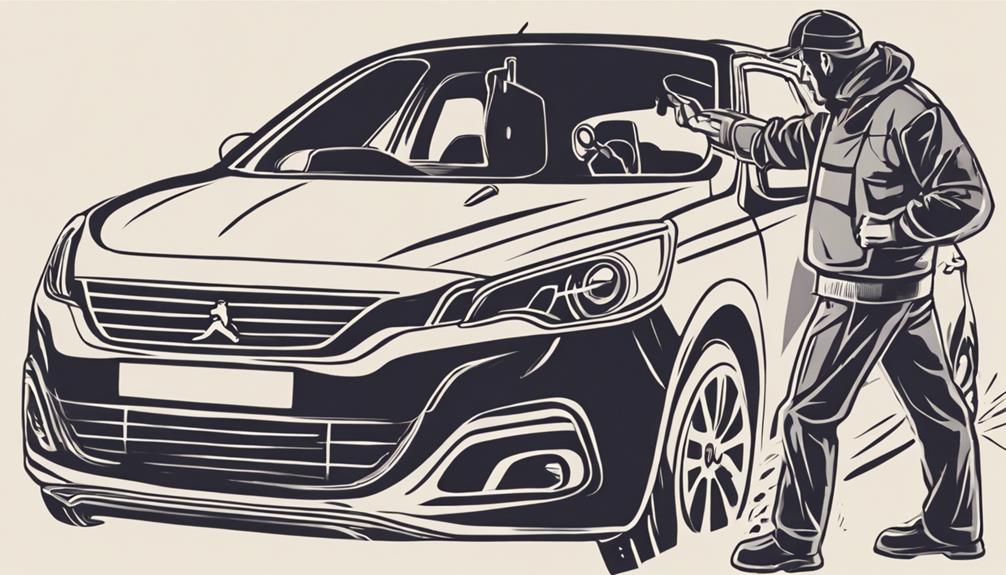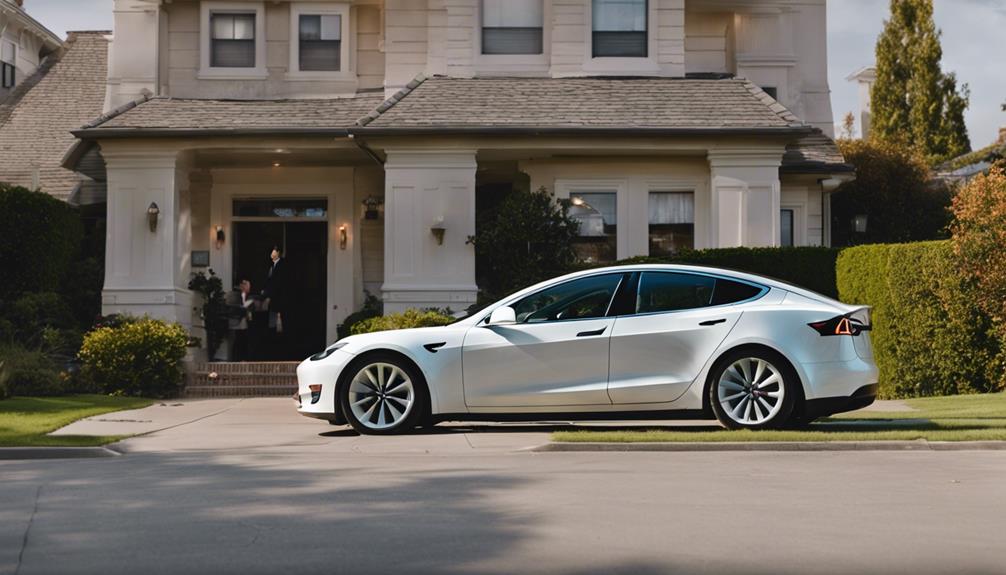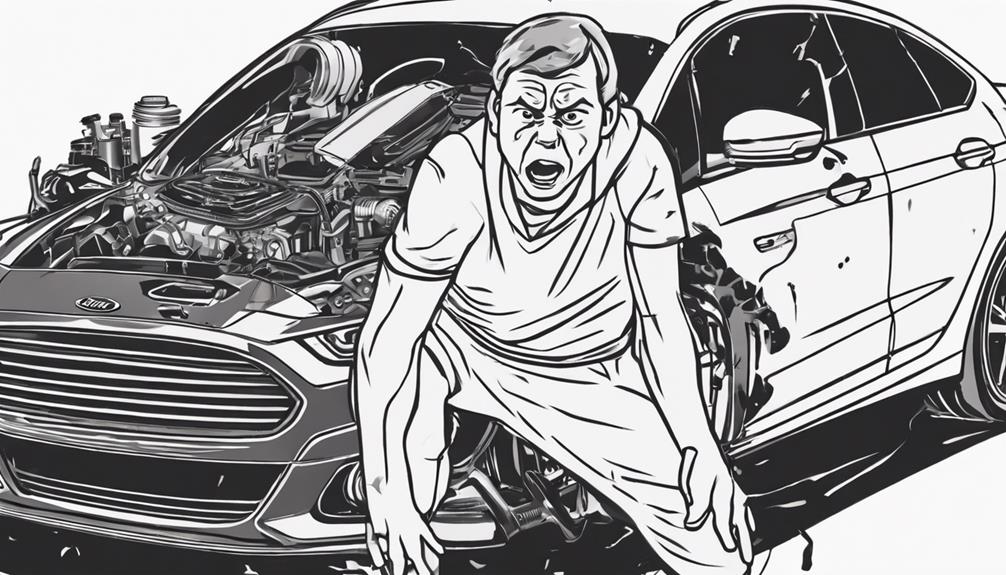If your Hyundai won't start, it might be because of issues like battery troubles, ignition system snags, fuel pump glitches, or engine problems. Check if the headlights turn on when you start, confirm battery connections are clean and tight, and use a multimeter to check battery voltage. Inspect fuses for damage, test starter terminals for proper power, and verify alternator output voltage falls within 13.5 to 14.5 volts range. Seeking expert advice from skilled technicians can help diagnose and resolve starting problems efficiently. Understanding these common causes and solutions can get your Hyundai back on the road smoothly.
Key Takeaways
- Check battery for corrosion, low voltage, or age-related issues.
- Inspect ignition system for faulty switch or worn spark plugs.
- Test fuel pump functionality for proper starting.
- Assess engine for mechanical problems like seized engine or damaged timing belt.
- Consult Hyundai mechanics for expert diagnosis and resolution.
Common Causes of Hyundai Not Starting
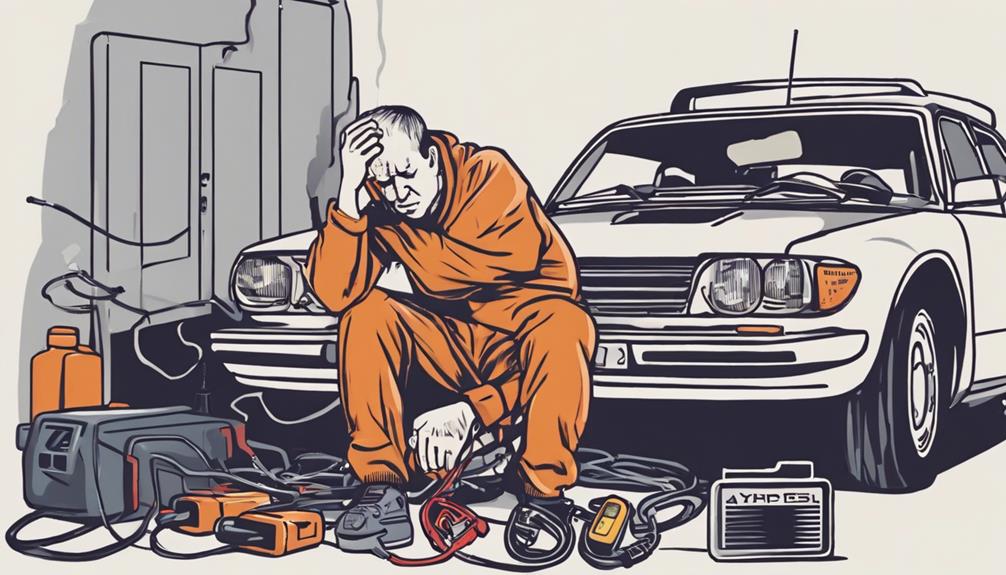
If your Hyundai refuses to start, it's often due to a range of common culprits that can leave you stranded and frustrated. The battery plays an important role, with issues such as corrosion, low voltage, or old age being frequent troublemakers.
Ignition system problems, like a faulty ignition switch, worn spark plugs, or a malfunctioning starter motor, can also be the reason behind your Hyundai's reluctance to kick into action.
Ensuring that the fuel pump is functioning correctly is essential, as problems with fuel delivery can lead to starting issues. Sometimes, even engine mechanical problems, such as a seized engine or a damaged timing belt, can throw a wrench in your starting attempts.
To troubleshoot these issues effectively, consulting Hyundai mechanics and checking for voltage drops across critical components can help you diagnose and resolve the problem efficiently.
Checking and Testing the Battery
When troubleshooting a Hyundai that won't start, the initial step is to carefully check and test the battery for any underlying issues. Start by turning the key and observing if the headlights come on. A dead battery could be the culprit if they don't.
Verify the battery connections are clean and tight to guarantee a good electrical connection. If jump-starting the Hyundai works, it may suggest that the battery is old or faulty and needs replacing. Take a close look at the battery for any visible damage or corrosion on the terminals.
To assess the battery's health and performance, use a multimeter to confirm the voltage. Remember, a bad battery or a bad connection can prevent the starter motor from engaging and starting the Hyundai Sonata. Keep a vigilant eye on the battery to keep your car running smoothly.
Inspecting Fuses and Connections
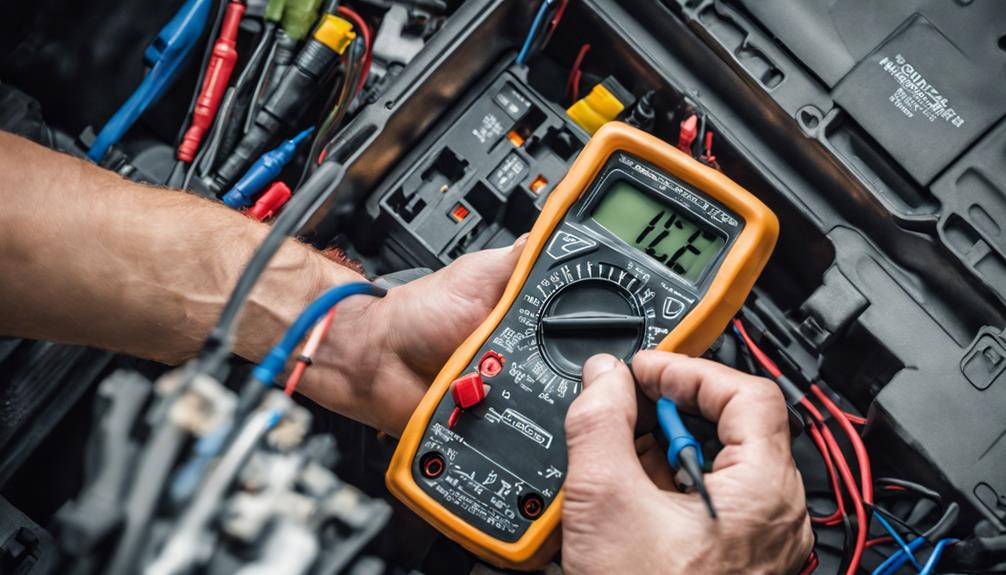
Examine the fuse box under the hood of your Hyundai for any blown fuses that could be the culprit behind the starting issues. If you find a blown fuse, it may have disrupted the electrical flow to essential components in the starting system. Here are some steps to help you diagnose and fix the problem:
- Inspect All Electrical Connections: Check the connections to the battery, starter, and ignition system for signs of corrosion or damage. Corrosion can impede the flow of electricity, leading to starting issues.
- Use a Multimeter for Testing: Employ a multimeter to test the continuity of fuses and measure the voltage at different connection points. This will help you accurately pinpoint any electrical irregularities within the starting system.
- Check for Loose or Damaged Wires: Look for any loose or damaged wires that could be disrupting the proper flow of electricity. Verify all wires are securely connected to maintain a consistent flow of power throughout the starting system.
Assessing Starter Terminals and Wiring
Inspecting the fuses and connections of your Hyundai can provide valuable insights into the starting issues you may be experiencing, but delving deeper into the assessment of starter terminals and wiring is essential for a thorough diagnosis.
To start, check the voltage on the starter terminals to confirm a proper power supply. Any deviations from the recommended voltage range could indicate underlying problems.
Next, meticulously inspect the wiring connected to the starter for any visible signs of damage or corrosion. Even minor wear and tear can disrupt the flow of electricity needed to kickstart your Hyundai.
Don't forget to verify that the starter relay isn't only receiving power but also functioning correctly. A faulty relay can prevent the starter from engaging, causing frustrating start-up failures. Keep an eye out for loose or disconnected wires that might be impeding the starter's operation.
Lastly, ensure the ground connection to the starter is secure and free from any faults. A solid ground connection is crucial for the starter to function at its best.
Verifying Alternator Output Voltage

To ensure your Hyundai's peak performance, confirming the alternator output voltage is a vital step in diagnosing potential starting issues. Monitoring this voltage can save you from a world of trouble. Here's how to do it:
- Check the Numbers: With the engine idling, use a multimeter to measure the alternator output voltage. It should fall within the range of 13.5 to 14.5 volts. Anything notably lower or higher could indicate a problem.
- Watch for Warning Signs: Low alternator output voltage may cause dashboard lights to dim or flicker, leading to a scenario where your car won't start due to a drained battery. On the other hand, high voltage levels could harm your vehicle's electronics.
- Maintain Regular Checks: Make it a habit to monitor your alternator output voltage periodically. This practice ensures a healthy charging system, preventing unexpected starting issues and ensuring reliable starting every time. Remember, a small check today can save you a headache tomorrow!
Seeking Expert Advice for Troubleshooting
Monitoring your Hyundai's alternator output voltage is crucial for diagnosing starting issues; however, when complexities arise, seeking expert advice for troubleshooting can provide accurate solutions and prevent unnecessary costs.
If you find yourself in a situation where turning the key results in no response, it might be time to take a look at seeking professional help. A skilled technician at a repair shop can quickly diagnose whether the starter would need to be replaced or if other components like the battery or alternator require attention.
These experts have the tools and knowledge to conduct thorough tests, such as battery load tests and voltage checks, to pinpoint the exact cause of the starting problem. By consulting with a professional, you can verify that all electrical and mechanical parts are checked correctly, avoiding unnecessary expenses on parts that may not need to be replaced.
Trusting expert advice ensures that your Hyundai gets back to full power without wasting time or money on guesswork.
Frequently Asked Questions
What to Do if Hyundai Car Is Not Starting?
If your Hyundai won't start, verify the battery first. Test the headlights for battery function. Jump-start if necessary. Confirm clean connections. If jump-start works, think about replacing the battery. Keep your ride running smoothly!
What Would Cause My Car to Suddenly Not Start?
When your car suddenly won't start, it could be due to a variety of issues like a bad battery, starter relay, or wiring problems. Checking these components and seeking expert advice can help diagnose and fix the problem.
How Do You Fix a Car That Struggles to Start?
When your car struggles to start, make sure the battery has juice, check the starter and fuel system, inspect the electrical components, and if all else fails, seek a mechanic's help for a thorough diagnosis and fix.
Why Won T My Hyundai Start Clicking Noise?
If your Hyundai won't start and you hear a clicking noise, it's likely due to a weak battery or faulty starter. Check battery connections, test the battery, and inspect the starter for issues.





